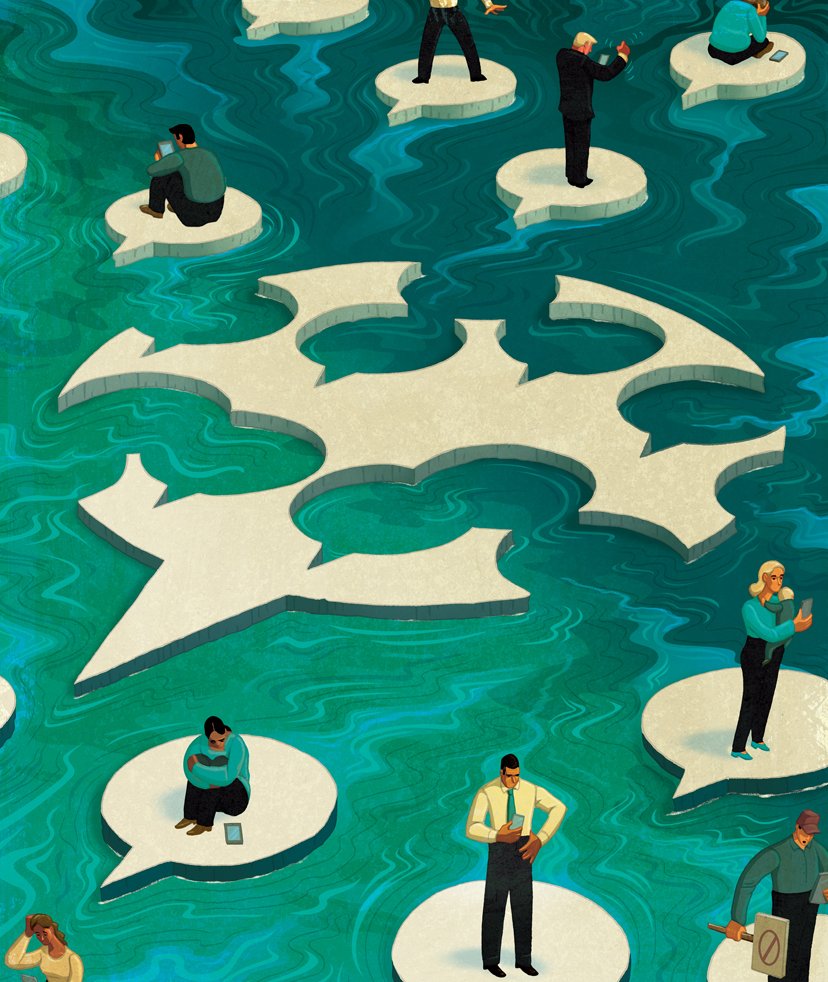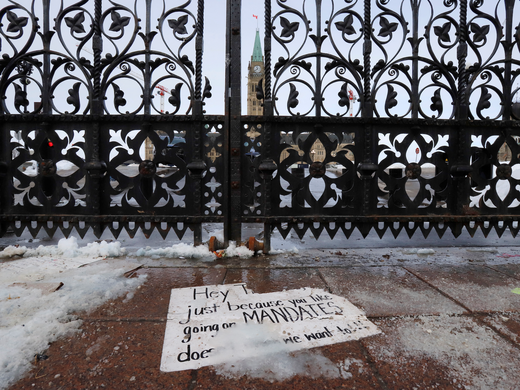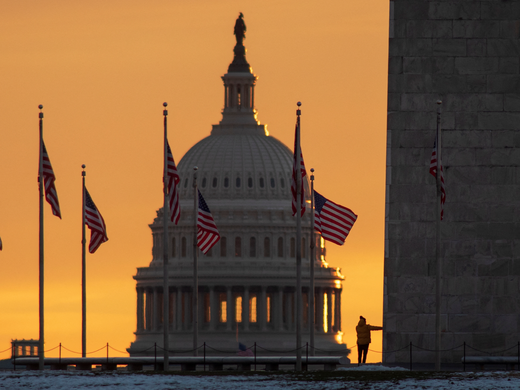Abraham Lincoln was an omnivorous reader until the day he died. But in his penniless early years he possessed just a handful of books, which he reread until they fell apart. Chief among these were the King James Bible, first published in England in 1611, Aesop’s Fables, a collection of classical folktales dated back to the sixth century BCE, and the collected works of William Shakespeare. Lincoln’s Gettysburg Address, just 272 words long and perhaps the greatest political communication ever written, is the product of a mind trained by repeated exposure to a very few, highly impactful canonical narratives.
Embedded in those narratives, aside from lyrical phrasing, were values. The core canon comprises a wisdom literature that, for better or worse, reflects the distilled moral intelligence of the Judeo-Christian tradition and the foundation of Western civil legal traditions. Hindi and Taoist canonical texts will have played a similar part in Asian and South Asian contexts.
Which begs the question: What happens when a community — be it local, national or global — becomes radically unmoored from its spine of shared narrative? It seems we are finding out. Indeed, one can argue that the great unmet crisis of global governance in 2022 is the continuing failure to deal with the cascading fracturing of any shared social narrative, as it is rapidly eclipsed by a kaleidoscopic, digital tumult. This requires urgent international attention.
The Group of Twenty (G20) Digital Economy Working Group — the closest thing we have to a global conclave on digital transformation, or Digital Stability Board — is puttering about with furthering digital skills and literacy, with a focus on the data economy. That’s fine, as far as it goes. With a major land war in Eastern Europe, energy and food supplies cut off or curtailed, China threatening war with Taiwan, US democracy in peril and the populist far right gaining strength globally, it may seem a stretch to ask international multilateral bodies to prioritize anything to do with machines and screens.
“We are gridlocked in colossal global dysfunction,” is how United Nations Secretary General António Guterres put it to the General Assembly on September 20, not mincing words.
Yet digital disruption must move to the fore among crises. Because, make no mistake, disinformation and online harms — which legislators in Canada, the United States, Europe and Australia are belatedly scrambling to combat — are just the leading edge. Video and auditory deepfakes are here. And the “metaverse,” or Web3, which Meta’s Mark Zuckerberg and others are working hard to deliver to an expectant world, promises to take the already broken pieces of our polities and atomize them.
With the looming nexus of fifth-generation (5G) mobile networks, quantum computing and artificial intelligence (AI)–rendered avatars, there may soon be no need for actual civic engagement: you’ll be able to create your own “friends,” design your own interlocutors and live in your preferred reality. As Zuckerberg himself has suggested, perhaps not in so many words: The life of the mind is the real world.
Consider just some of the disruptions wrought by digital technology (confining ourselves to communications, which doesn’t account for the simultaneously cascading effects of innovations in machine learning, AI and military technology) in the past decade alone.
It was within the soon-to-be antiquated confines of Web 2.0 that Donald Trump parlayed an instinct for the jugular with Twitter braggadocio and Russian help, via social media manipulation, to become the most powerful human on earth. During his term as president, Trump wreaked havoc with a bipartisan American tradition of global democratic leadership dating back to the Second World War; furthered disintegrationist trends in Europe (most obviously in the case of Brexit); and fanned authoritarian, neo-fascist movements in the United States and around the world.
As University of British Columbia scholar and CIGI Senior Fellow Heidi Tworek has pointed out, it’s easy to fall into the trap of assuming today’s problems are entirely new. Disinformation and propaganda, for example, existed long before the personal computer. “Fake news” was fundamental to the political playbook of ancient Rome. Niccoló Machiavelli, in his 1532 treatise on statecraft, The Prince, elevated deception and manipulation to high political art.
That said, the speed and visceral reach of digital communications, together with the fragmentation of information and the disappearance of fact-checking in mainstream public narratives, are new elements. That Trump remains a leading prospect for the Republican Party nomination for president in 2024, despite having led an insurrection in 2021 that sought to topple American democracy, is testament to the disruptive power of fracturing narratives.
Consider that in the era of US Republican presidents Ronald Reagan and George Bush Sr., a single generation ago, the Grand Old Party aligned itself with an ideology of limited government, liberal trade, law and order, duty and, in its more idealized iterations, an aspiration to tradition and personal decency. Trump has heaped all this into a dumpster and set it aflame. The vast majority of his supporters don’t seem to realize this, let alone grieve what they’ve lost.
Since the Allied victory in the Second World War in 1945, globalization and medical science have been primarily responsible for the relative peace and prosperity enjoyed by citizens of the Western democracies.
Since then, the COVID-19 pandemic of 2020–2022 has laid bare to what extent fractured narratives online threaten public health and social order. It isn’t enough that the World Health Organization, Harvard Medical School, Johns Hopkins Medicine and every other established source of medical science on the planet has found COVID-19 vaccination to be safe and effective in preventing serious illness from the virus. Reddit, podcaster Joe Rogan and various YouTubers hold at least equal sway in the public imagination: argue they’ve got it wrong and you cement your status as a pawn of the globalist conspiracy. Globalization — indeed, internationalism itself — is the chosen bugaboo of the populist, disintegrationist movement.
The tragedy in this is that since the Allied victory in the Second World War in 1945, globalization and medical science have been primarily responsible for the relative peace and prosperity enjoyed by citizens of the Western democracies and, to some extent, people worldwide. Canadian public intellectual Steven Pinker, in his 2018 book Enlightenment Now, demonstrated exhaustively how extraordinary the advances have been in lowering infant mortality, increasing life span, improving nutrition, advancing gender equality and reducing global violence.
In Understanding Media, published in 1964, a prescient Marshall McLuhan took note of the glimmering eye of broadcast television and provided a glimpse of the post-canonical future. (I say post-canonical, rather than post-literate, because in 2022, more humans are reading more “content” than at any other time in history.) McLuhan developed a model for thinking about media, based on a metaphor of temperature. “Hot” media, he theorized, were those dense in information; colder media, freighted with less data, were inherently less powerful.
“Telephone is a cool medium,” McLuhan wrote, “…because the ear is given a meager amount of information. And speech is a cool medium of low definition, because so little is given and so much has to be filled in by the listener. On the other hand, hot media do not leave so much to be filled in or completed by the audience.”
He continues in terms that presage the era of algorithmic social media platform manipulation: “Any hot medium allows of less participation than a cool one, as a lecture makes for less participation than a seminar, and a book for less than dialogue.…our own time is crowded with examples of the principle that the hot form excludes, and the cool one includes.”
McLuhan had pinpointed something vital and true about how human beings consume information. As technology becomes ever more sophisticated, “high-definition” (McLuhan’s term) and immersive, the consuming imagination becomes more passive. Zuckerberg and his competitors promise a world in which every individual (given access to technology and leisure) can invent and live in a bespoke world, with godlike freedom. But the promise seems hollow. Following McLuhan’s logic, immersive or “virtual” reality has the potential to remove individual agency almost entirely from the exchange. Even in the metaverse, the medium is the message.
This idea reinforces that digital technology, like every earlier human innovation, is Promethean. It delivers fire into human hands, which can either preserve or cause harm. The risks of an untrammelled, 5G-fuelled metaverse, in which AI-generated “personalities” are indistinguishable from human avatars, and in which nothing can be considered a fact because every person’s “fact” is theirs alone, are obvious.
Moreover, it’s impossible to imagine, given the systemic abuse of digital innovation thus far by authoritarian actors — led by the regimes of Russian President Vladimir Putin and Chinese President Xi Jinping, but by no means limited to them — that the next chaotic iteration of the Web won’t be further bent by bad actors for political ends.
This brings us back to Lincoln and his Bible. Deconstructionist critics will decry laurels for the Western classical literary canon, pointing out — rightly — that shared mythologies, particularly theistic ones, have historically been used as a pretext for exclusion as much as to weld communities together. This is the flip side of a tribal narrative; preserving and protecting the group, particularly one perceived by its members to be under siege from without, covers a multitude of sins.
Meanwhile, as we are bombarded by digital information, our intellectual terra firma continues to crumble. In a media landscape without gatekeepers, the fact-checkers are also absent.
The genius of the Enlightenment, as Pinker makes plain, was that its seminal thinkers extended the definition of the human tribe to all people. Further, there’s this fact about a great book: it doesn’t change after publication, so that everyone who reads it shares a common experience (although with a novel, unlike a film, readers create the special effects). This common hinge is what allowed myth to evolve into scripture and scripture into law. For a national constitution is just an agreement, based on a set of shared ideas. In that sense, it’s like currency: it exists and has value because we believe it does.
The arc of Western civilization since the Renaissance has been integrationist and progressive, in that smaller polities progressively banded together into larger ones in the face of shared threats or common aspirations. The formations of the United States and Canada are relatively recent examples. The European Union, built in the rubble of the most catastrophic war in history, is the greatest historical example we have.
That war, as CIGI thinkers have often pointed out, galvanized the victorious Allied powers to come together at Bretton Woods in 1944, to lead the world in developing the modern, rules-based international order. That frame, which set the conditions for 75 years of subsequent prosperity and peace (relative to what came before), is now in disarray. It requires an upgrade that takes into account the rising Global South, the end of unipolarity in world affairs, and the accelerating, cascading disruptions of digital technology.
And there’s the rub: For which leaders, from which country or countries, will lead the charge? The United States has the resources and the heft. Does it have the will? In early September, a group of luminaries met at President Joseph Biden’s White House to discuss big tech accountability. Among other remedies, they recommended greater competition among technology firms, stronger privacy protections and more transparency. European leaders are seized of this problem. Scholars and researchers are developing remedies. Legislators, including in Canada, are aware of the immediate threat and venturing their own solutions.
There’s mounting evidence, however, that the patchwork of international digital and tech governance is emerging too slowly, and with too little accord. At a time when a Google engineer is fired because of a dispute over whether the company’s language software is self-aware, private companies are colonizing Earth’s orbit, lethal robots are in active development and AIs are creating art to rival any made by humans, a G20 working group is not enough. That body, even if it limps through the coming months, will be preoccupied for the foreseeable future with great-power contests within its ranks.
Meanwhile, as we are bombarded by digital information, true and false, scurrilous or penetrating, our intellectual terra firma continues to crumble. In a media landscape without gatekeepers, the fact-checkers are also absent. And the risk is cumulative. It’s not only fake vaccine narratives that disrupt, but climate-change denialism, fuelled by disinformation. If there is no agreement about the problem, there can be no agreement on a solution. The geopolitical consequences of worsening drought, fire and famine in the hot zones of the world are already obvious: destabilizing irregular migrations will increase. Xenophobia and hyper-nationalism are the historical result of such population flows.
That is why, again, there is an urgent need for an international Digital Stability Board: beginning with a high-level conclave, resourced with the best and brightest minds in the field, propelled by democratic governments, to grapple with digital transformation and disruption, and with security as well as economics. This could be, as CIGI has termed it, a Bretton Woods moment for the digital age. Or it could be something more ad hoc and less formal.
Whatever its shape and name, the discussion must begin, at the highest levels, now. The alternative — a continuing, ever-worsening fracturing of social order and the stability it makes possible — is grim. There’s a fire on the porch. Best take action before it engulfs the house.



